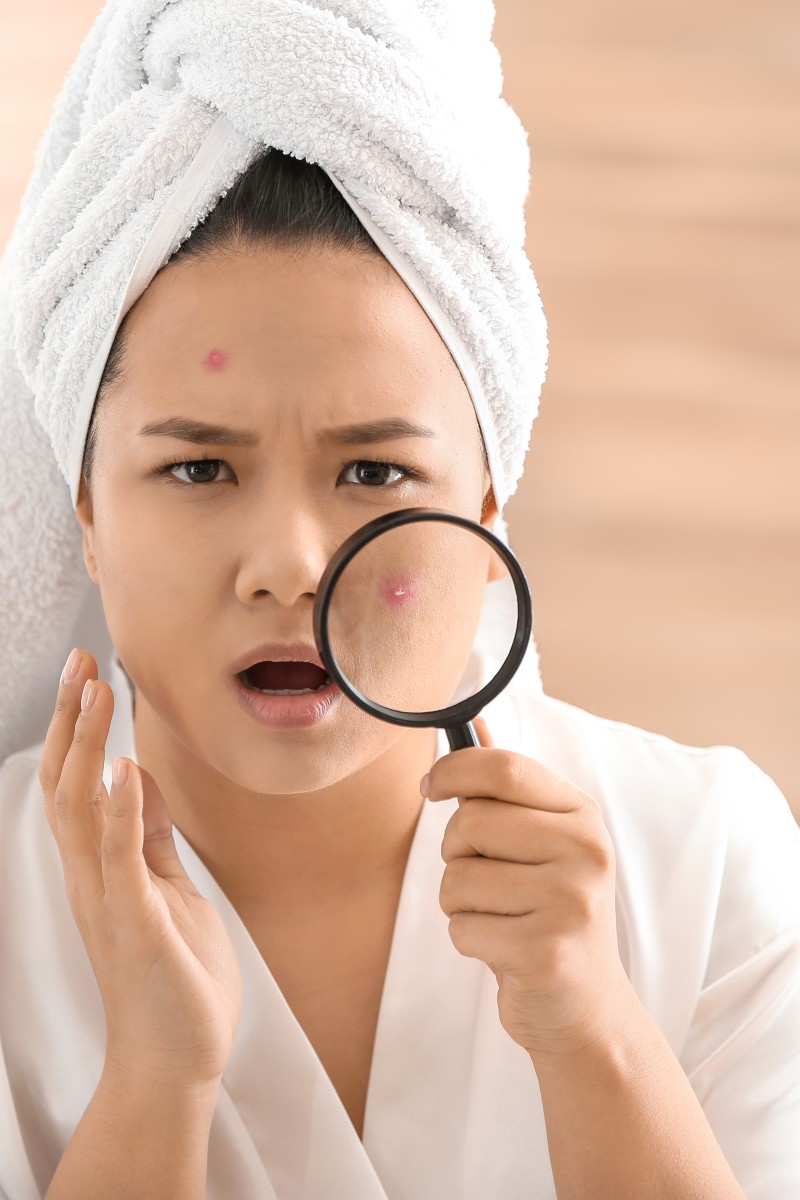
Our guide to what causes acne and how you can treat it
- Stress, hormones, and sweat can all contribute to breakouts, which are a normal part of teen life
- Learn the different types of spots you're dealing with and how you can handle them
 Most people need to deal with acne at some point in their lives - here's how to handle it.
Most people need to deal with acne at some point in their lives - here's how to handle it. Acne is a well-known part of teenage life, and something most people deal with at some point. It may appear on your face or your body, and it’s completely normal.
Although there is no cure, acne can be controlled.
There are lots of different reasons you might develop acne, and many of them coincide with getting older.
Top tips for healthy, glowing skin
Hormones
This is the most common cause of acne. As you reach puberty, the levels of hormones in your body change. Girls particularly may notice they develop spots as their periods start. Generally, though, hormonal acne will pass after a few years.
Stress
Stress (hello exams!), in combination with those hormones, can trigger a breakout. If you notice you get especially spotty during exam season, try to find ways to relax!
Sweat
It is more likely that you’ll get spots in the summer, as you’re sweating more, and sweat can irritate spots that have developed. Exercise is important at all times of year (and can boost your self-esteem), but make sure you shower as soon as possible once you’ve finished.
Hotter weather can also cause some skin types to produce more oil, which can cause more spots.
Your summer guide to a healthy scalp and hair
Friction
You may develop spots on the side of your face you most commonly sleep on, or where clothes rub on your body. Right now a lot of people are getting spots from wearing a mask all the time!
Diet
Although there is no scientific evidence that an unhealthy diet causes acne, a well-balanced diet, and plenty of water, is good for you in so many ways, and doesn’t hurt when it comes to healthy skin.
Types of spots
It’s important to know that there are different types of spots, meaning there will be different ways to treat it.
Comedones
Comedones, or comedos, are typically caused by an excess of sebum (oil) on the skin from excessive sweat or buildup products. These spots won’t be painful.
- Open comedones, or blackheads, are small, open spots that have oxidised, meaning they turn black.
- Closed comedones, or whiteheads, are small bumps that may come to the surface on the skin with a white head.
Inflammatory
There are three main types of inflammatory acne – papules, pustules and nodulocystic. These are what we know as pimples or spots, and most people will get these at some point in life.
Papules
Papules are red bumps that appear on the skin due to bacteria under the skin.
Pustules
Pustules are papules that have become infected and fill up with pus, which causes the spot to come to the surface of the skin with a white or yellow head.
Nodulocystic
Nodulocystic, also referred to as cystic acne, are large infected lumps under the skin (nodes and cysts) that are painful to touch.
How can you treat acne?
Cleanliness
Wash your face regularly every day – but not more than twice a day, as this can irritate the skin and make symptoms worse.
Extractions
Although generally to be avoided, some spots may heal quicker if you pop the white head. After cleansing your face, wash your hands, wrap your index fingers with tissue and gently squeeze the head of the spot. If nothing comes out, don’t force it – you will just damage the skin.
Afterwards, wipe it clean and apply a salve to soothe the skin. Avoid squeezing spots with no head, as it will only make your skin red and bumpy.
You can also squeeze blackheads following the same steps.
The best sunscreen to protect yourself
Topical treatments
The best ingredients for targeting acne are salicylic acid and benzoyl peroxide. Look for these ingredients when choosing a face cleanser, spot treatment or body wash.
Dermatologist
If you have severe acne, it is best to see a dermatologist. They will be able to properly medicate and treat the condition.
Leave it alone
Be gentle with your skin, as the more you try to do, the more it may cause irritation. Avoid using abrasive products such scrubs on a daily basis, don’t pick at your skin too much, and try not to wear a lot of heavy makeup. Sometimes the best thing to do is nothing at all, and let nature run its course.
